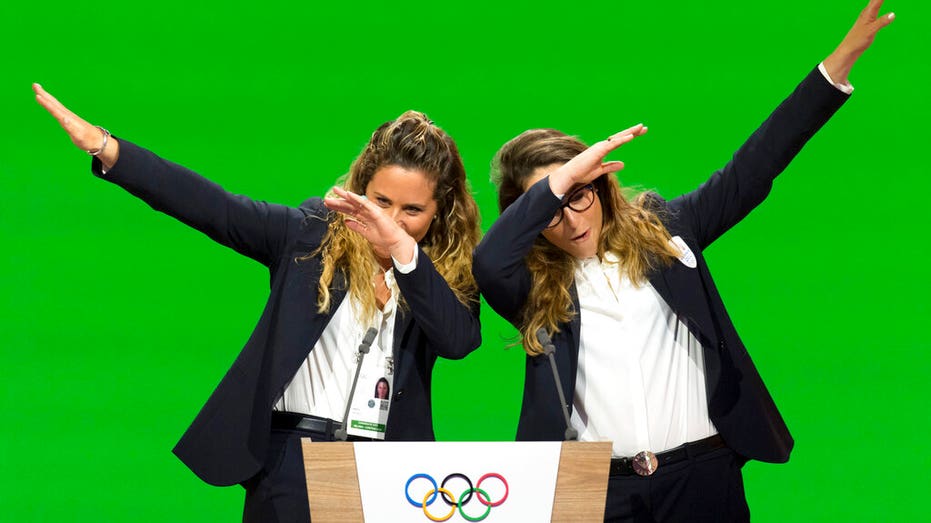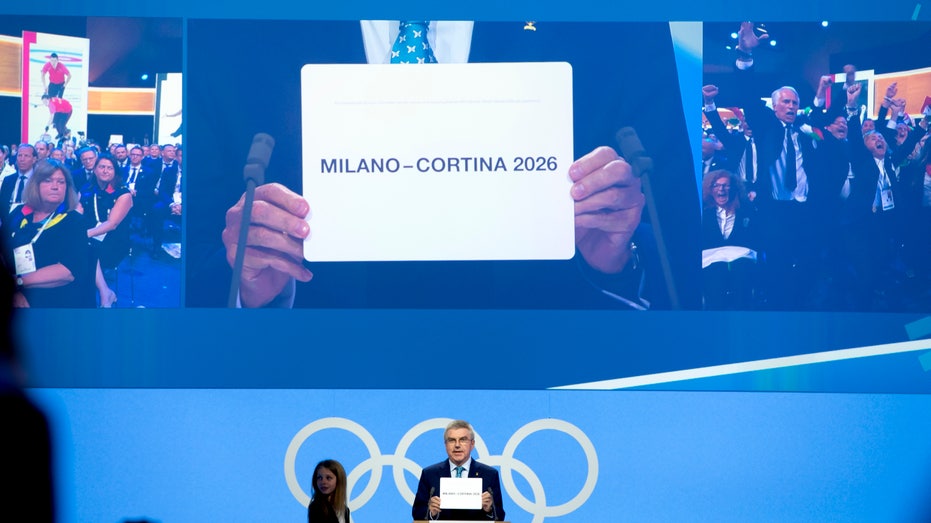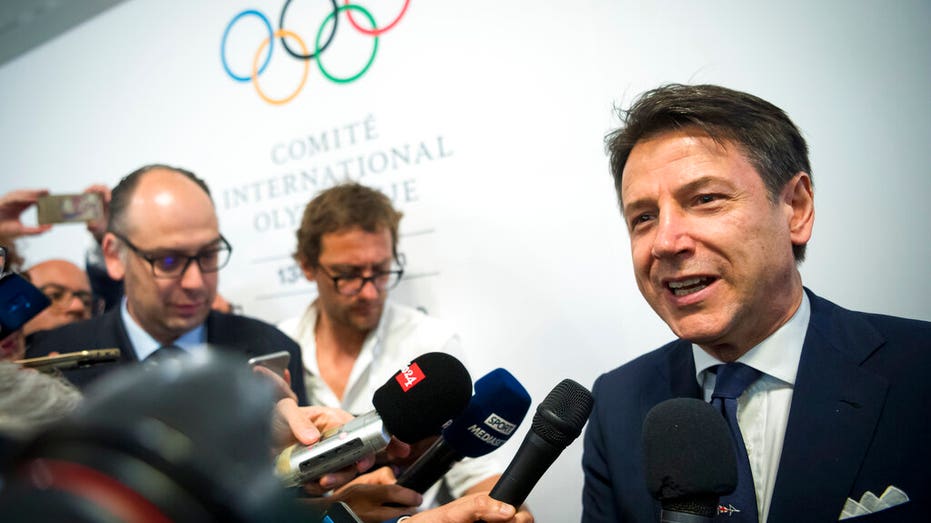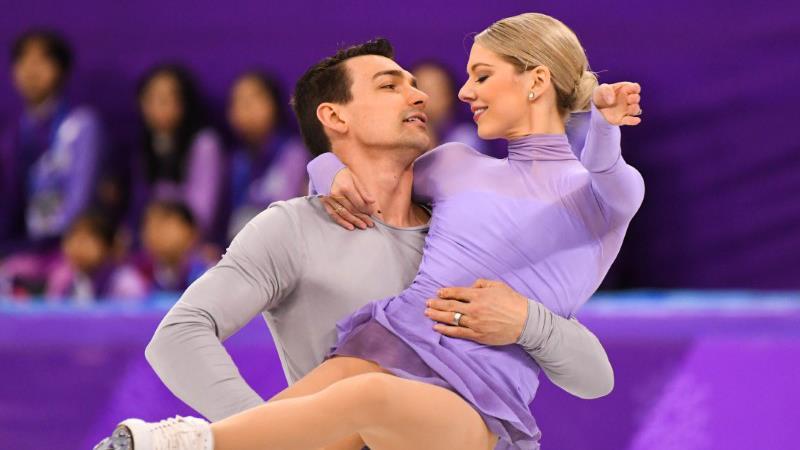IOC awards Italy as host of 2026 Winter Olympics
Italy will host the Winter Olympics for the second time in 20 years.
The International Olympic Committee (IOC) awarded the 2026 Games to the favorite joint bid from Milan and the Alpine ski resort of Cortina d'Ampezzo in a 47 to 34 vote on Monday. The Italian cities beat out a Swedish bid from Stockholm-Are that also included a bobsled track in Latvia.
Italy last hosted the 2006 Winter Olympics in Turin. Before that, the country hosted the 1960 Summer Olympics in Rome and the 1956 Winter Olympics in Cortina d'Ampezzo. In contrast, Sweden has never hosted a Winter Olympics.
"Italy won and the dream turned into reality!" the Milan-Cortina Olympic committee tweeted after the announcement.
Italy's bid presentation was livened by two Olympic champions, downhill skier Sofia Goggia and snowboarder Michela Moioli, doing a dab gesture and talking of their hopes to compete on home snow in almost seven years' time.

Italian snowboarder Michela Moioli, left, and Italian skier Sofia Goggia, right, dab after speaking during the final presentation of the Milan-Cortina candidate cities. (Laurent Gillieron/Keystone via AP)
Sweden's spirited late-campaign effort was in vain, and included the mayor of Stockholm appealing to voters from the stage by singing a line from the Abba song "Dancing Queen."
Minutes later, Swedish IOC board member Gunilla Lindberg ended her team's 30-minute presentation by challenging her colleagues to reward a new kind of creative, cost-effective bid that the IOC has said it wanted. "Or is it just talk?" she asked.
Despite this, IOC members voted to award the Winter Games to debt-hit Italy.

International Olympic Committee president Thomas Bach opens the envelope announcing that Milan-Cortina has won the bid to host the 2026 Winter Olympic Games. (Laurent Gillieron/Keystone via AP)
"We have budget problems in Italy but I think that this is something that everyone has," Italy Undersecretary of State Giancarlo Giorgetti said at an earlier news conference, citing the wealth of the Lombardy and Veneto provinces underwriting the games costs.
"They are two of the richest provinces in Europe," Giorgetti said. "They certainly have the capacity, they have the readiness, they have the finances in order to be able to support the event."
The IOC will contribute at least $925 million toward Italy's games operating costs of up to $1.7 billion.

Italian Prime Minister Giuseppe Conte speaks to journalists as he arrives for the first day of the 134th Session of the International Olympic Committee. (Jean-Christophe Bott/Keystone via AP)
The IOC has relaxed previously strict rules that demanded financial guarantees and government support earlier in the bidding process. That was an attempt to make bidding for the Winter Games more appealing, having only two candidates on the ballot paper for the second straight time.
Lately, the IOC has also sought to avoid costly new venues while encouraging regions and multi-nation bids to share the load.
The Associated Press contributed to this report.




















